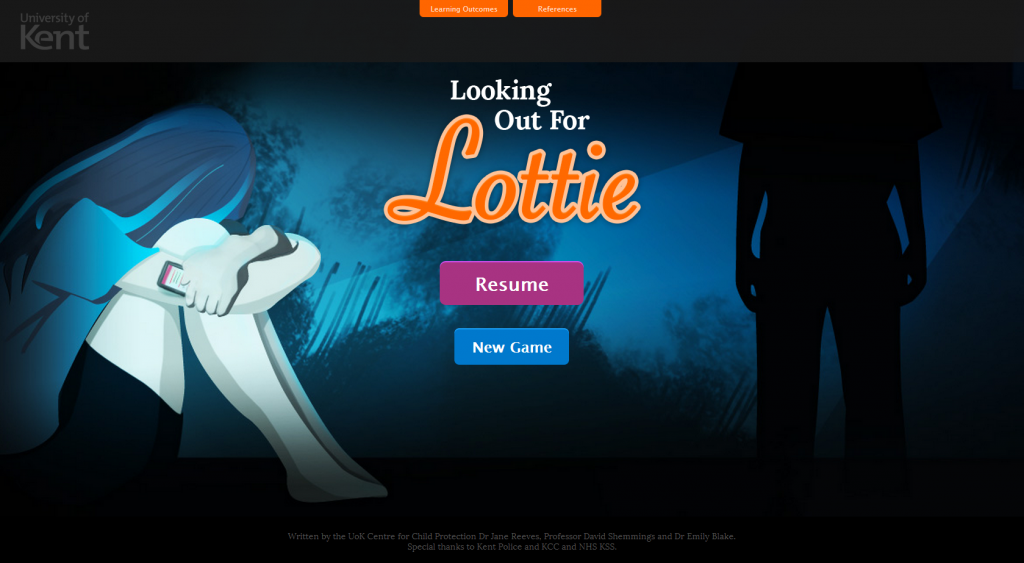The Centre for Child Protection has been working with Childline to adapt some of the Lottie scenes for an online campaign currently running on Childline’s website: ‘Lottie’s Story’
Rise in children and teenagers being counselled by Childline after suffering sexual abuse by another young person
- A 29% increase in Childline counselling sessions for peer-on-peer sexual abuse in the last year
- Young people report being confused about sexual consent, especially after drinking alcohol
- Childline re-launches #ListenToYourSelfie campaign to help teenagers recognise if they’re in an unhealthy relationship
There has been a significant rise in Childline counselling sessions with children and teenagers who have been sexually abused by their peers.
In 2017/18 the NSPCC-service provided 3,878 counselling sessions – a 29% increase on the previous year.
The true scale of the problem could be much greater, given that many of those who have suffered peer-on-peer sexual abuse may not be able to recognise that what they are experiencing is abuse and may find it difficult to talk about what has happened to them.
The latest Childline figures also reveal 70% of the counselling sessions delivered were a result of sexual abuse by a friend or another young person, with the other 30% committed by a current or previous partner.
To try and prevent sexual abuse from peers and to encourage those that have suffered it to speak up and seek help, Childline has re-launched the #ListenToYourSelfie campaign.
Childline is working with the International Centre for Child Protection at the University of Kent to promote ‘Looking Out for Lottie’. This online tool helps young people identify when a relationship might not feel quite right and to recognise early signs of grooming. Through a series of social media posts, messages from her friends, and private messages from boyfriend Jake, Lottie’s story shows how easy it can be to fall into an unhealthy relationship.
The campaign also includes two short films based on common real-life scenarios affecting young people. These videos are intended to support young people to understand the importance of consent and their right to say no if anything makes them feel uncomfortable or anxious.
The campaign materials have been designed to emphasise that it is never the fault of the young person suffering abuse, as well as letting them know there is always help available if they have suffered harassment or assault.
Teenagers who contacted Childline about peer-on-peer sexual abuse revealed a general lack of understanding about consent, with some feeling unsure about whether something is abuse if they are in a relationship.
One girl aged 14 said: “My boyfriend is sometimes violent towards me and recently he’s forced me into doing sexual things when I didn’t want to. It wasn’t always this way but it’s been going on for a few weeks now and I’m worried it’s going to get worse. I’m scared of how he would react if I tried to end the relationship. I don’t feel like I can speak to someone without my parents or friends at school finding out. I’m really scared.”
From September 2020 Relationships and Sex Education (RSE) will be mandatory in all secondary schools but only Relationships Education (RE) will be rolled out to primary schools. The charity is calling for both curriculums to cover what abuse is and how to recognise its signs, as well as what respect and tolerance, boundaries and consent mean in all forms of relationships.
Dame Esther Rantzen, Founder and President of Childline said: “One of the ways to reduce peer-on-peer sexual abuse is by helping young people understand the difference between a healthy and an unhealthy relationship.
“We know that relationships can be confusing and it can be hard to know if the dynamic is changing and things are starting to go wrong.
“If you ever feel pressured to do something you don’t want to, we urge you to get support, either from a friend, a trusted adult or Childline.”
Any child worried about peer sexual abuse can call Childline on 0800 11 11. Any adult who is concerned about a child can call the NSPCC Helpline on 0808 800 5000.

